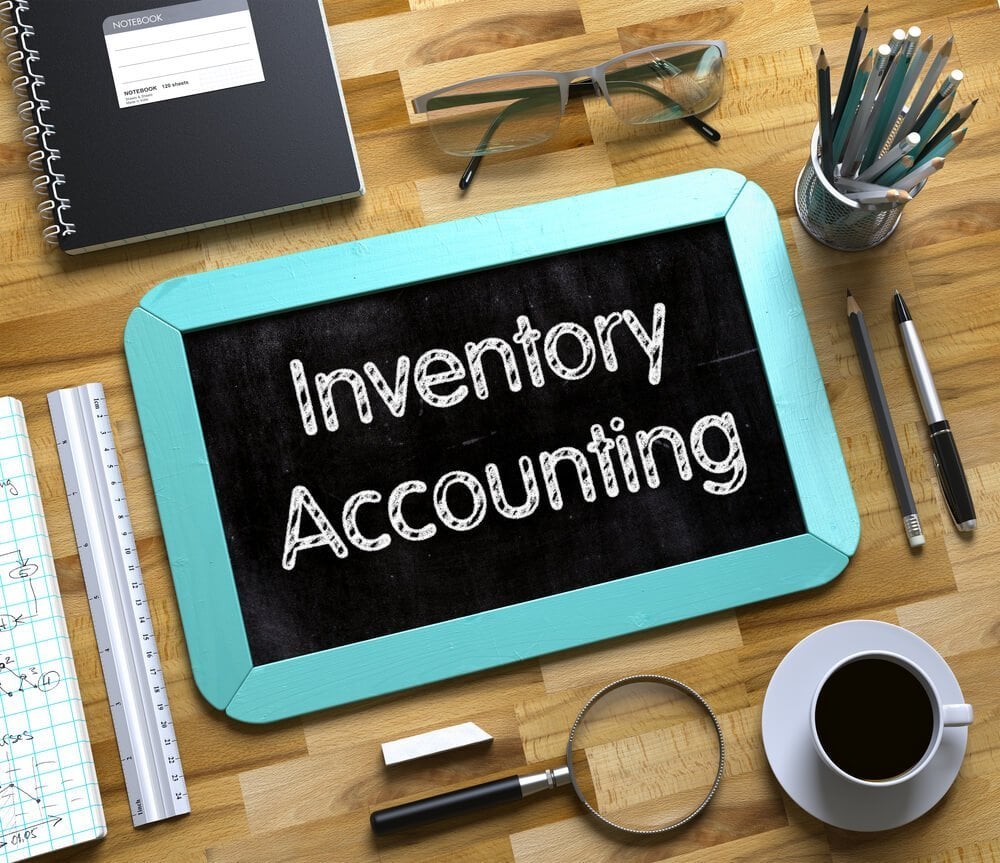Accounting inventory by calculating inventory in accounting terms is a specific and unique part of business success While inventory management tracks and controls inventory movement, The accounting side deals with financial information closely linked to the purchase and sale of finished goods, and in this inventory accounting manual inventory management ", you will learn everything you need to know about this system from the concept of inventory management in general, read on.

Inventory management concept
Inventory management is more than just tracking what you have in your inventory or warehouse, and is also sometimes known as inventory control, inventory management involves, but is not limited to, tracking specific parts to build your products and/or services, managing your supply suppliers, ensuring continuous flow of inventory availability in case of increased demand, and maintaining the optimal inventory level. At all times to ensure continuity of work.
What is inventory accounting?
Inventory accounting is the type of accounting that covers financial operations and business inventory responsibilities, accurately depicts the company's assets, and since inventory always changes, the variables associated with its accounting must follow specific methods and procedures to ensure an accurate portrayal of the company's financial resources.
Inventory accounting is important and often huge for any company, and should cover both sold and unsold products as they come and go from inventory and bookkeeping records.
How does inventory accounting work?
Inventory accounting includes an accurate depiction of a company's financial health as determined by its inventory, there are many variables that inventory accounting deals with, from inventory movement, daily fluctuations in quantity, inventory obsolescence, dead inventory, etc.
Companies will need to choose a specific inventory accounting system and cost assessment method, and adhere to their guidelines to extract and calculate required financial information from fluctuating expenditures and revenues. Inventory accounting works by tracking inventory costs and recording inventory assets, and total inventory value at the beginning and end of the accounting period to determine business measures.
Types of inventory accounting systems
There are two central inventory accounting systems that your business can choose to use when tracking and recording the inventory's financial resources, namely:
Comparison of periodic inventory accounting systems
The permanent inventory system records inventory balances and tracks them continuously. Updates are made automatically on the permanent system, tracking when the product enters or leaves the inventory account, in return, the periodic inventory system tracks inventory by periodically checking inventory, using physical inventory to measure inventory and cost of goods sold.
Cost of goods sold (COGS)
The cost of goods sold, also known as COGS, refers to all costs associated with the company's production process, such as the raw materials needed to manufacture those goods, the value of all goods stored sold within a certain period of time.
How is inventory classified in accounting?
In accounting, inventory is classified as a current asset and will be reflected as such in the company's balance sheet, when an inventory element is recorded in the balance sheet, these current assets are listed at the price at which the goods were purchased, not at the price at which the goods are sold.
Opening stock balance and end of stock balance must be recorded on balance sheet each period.
Should I report inventory?
Yes, simply put, all companies must report their inventory to their country's revenue collection agency, however, revenue collection agencies do not need to know the specific inventory items, they need to know the costs of goods sold and net income, both calculated using stock balance.
Does inventory count as income?
Inventory is not calculated as a direct entity as income in the per capita income statement, however, the value of the inventory is directly related to the company's revenue and total income, so the inventory itself is not income, but the value of the inventory is required to determine income.
Main methods of calculating inventory costs
There are three main ways of valuing inventory that companies can choose to use to calculate the value of their inventory, to accurately calculate and record estimated inventory each year, companies must identify and adhere to one of these cost estimation methods.
To meet your business needs and in order to comply with your country's tax collection agency, you will need to produce accurate and accurate financial statements, according to information collected from these inventory accounting methods.
The importance of inventory account control
Inventory account monitoring is about managing the amount of stock you have available in your warehouse or storage facility. Managing a successful inventory account means balancing having enough stock on hand, to meet customers' requests in a timely manner without dumping most of your budget into paying for inventory.
Having a functional inventory accounting management system is an integral part of managing a successful and scalable business, an effective inventory accounting system will help you understand how to maximize profit for the lowest possible investment, while continuing to satisfy your customers, inventory control can reduce the risk of going out of stock and potentially losing sales, which can have a negative impact on customer relationships.
Bad inventory management risks
The risks of a poorly managed inventory accounting system include a range of consequences for your business of loss:
1. Inventory damage
The mismanagement of the inventory accounting system damages the goods themselves, owing to the lack of comprehensive inventory control, which can have a negative impact on the infrastructure needed, for example, when storing or managing orders, a series of measures should be put in place to minimize the impacts on the company's product as much as possible.
2. Theft
This is one of the most important risks in any company if its inventory accounting control is not fully regulated, it is very important to establish effective inventory control? Theft occurs on a regular and semi-ongoing basis. By establishing good inventory control, we can minimize them as much as possible or be able to identify them as soon as possible, when they occur.
3. Losses
The other downside of weak inventory accounting management is the losses that occur In the end, it has a similar effect to theft, and in essence involves the disappearance of the supposedly profitable goods, It can be understood that the company's proper inventory accounting system is a tool that helps in essence, to avoid losses, and in this way can be understood as a balance sheet containing the company's own assets, Thus, it must accurately reflect the company's value through its inventory.
Conclusion:
Each inventory management company should use the inventory accounting process to determine the value of the company's inventory assets, there are many common inventory accounting methods that companies rely on to assign value to their inventory and maintain proper record keeping, inventory valuation is an important business process that directly affects profits and taxes.
other topics:
reference
1. <<Retail Accounting: Why Is It Essential For Inventory Management>>,Harlem World Magazine
2. <<Why Accounting For Inventory Is Vital For All Small Businesses>>, Software Advice

Comments
27 Aug 2023 03:16 AM
ابو وليد
ممتاز
27 Aug 2023 03:18 AM
HEISSIN
بالتوفيق
27 Aug 2023 03:19 AM
زين
مشكورين
Add New Comment